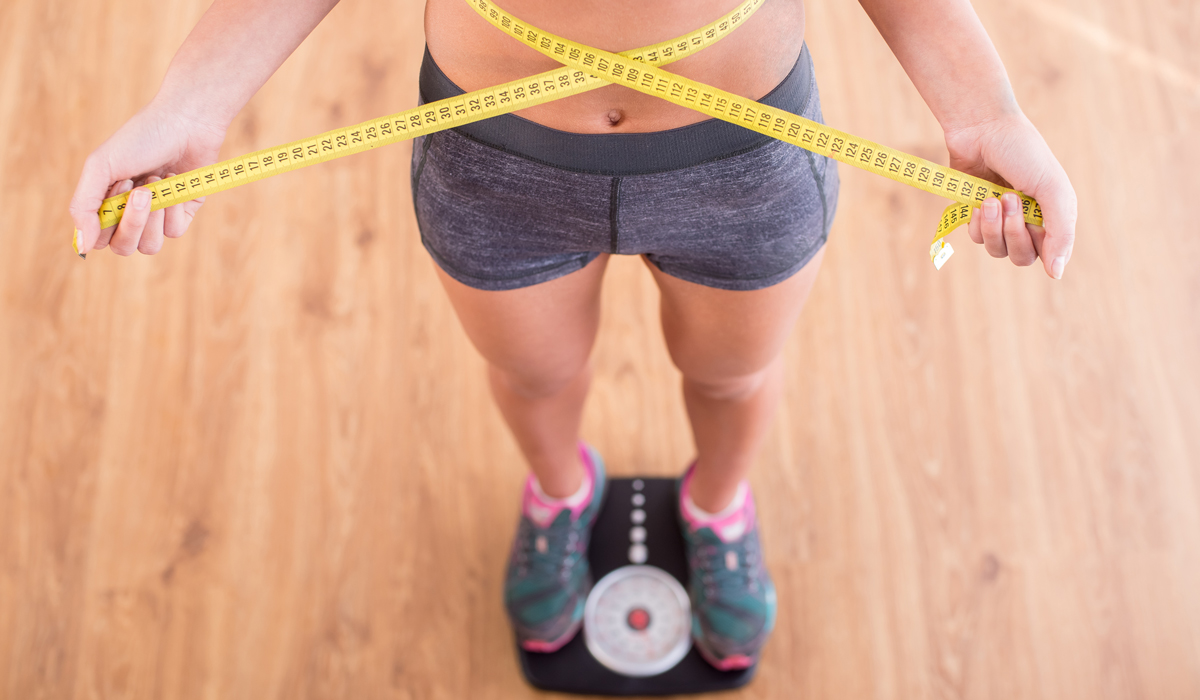Why you're not losing weight in a calorie deficit
01 Dec, 2023
It's incredibly frustrating when you feel you're doing everything right, but you’re not losing weight. Here are some common reasons why you might not be seeing results and how to get back on track.
What is a calorie deficit?
Your body must draw on its fat energy stores for you to lose weight. To make that happen, you need to consume fewer calories in your food and drink than your body uses each day – this is called a calorie deficit. You can achieve this deficit by eating fewer calories, burning more calories through physical activity, or, ideally, combining both.
How much should my calorie deficit be?
Everyone's energy needs are unique and depend on your age, height, weight, sex, genetics, and how active you are. Once you know your daily energy needs, you can work out a deficit that will allow you to lose weight steadily and healthily. For example, a deficit of 500 calories per day below your maintenance level should result in 1 lb weight loss per week. A 750-calorie deficit should equate to 1.5 lbs a week, while a deficit of 1,000 calories equates to 2 lbs lost.
Apps like Nutracheck use your personal details to calculate how many calories you need to maintain your current weight, then apply the necessary calorie deficit to set your daily calorie target, depending on how quickly you want to lose weight.
So, what if you're eating within your target calorie range but you still aren’t losing weight? Check to see if any of the following apply.

1Have you stopped weighing your portions?
Accuracy is key. Small discrepancies can quickly add up and derail your diet – especially when it comes to high-calorie, yet healthy, foods, such as olive oil or avocado. These are great additions to a balanced diet, but if you don't weigh them, 100 calories can quickly turn into 200 – and this can reduce your daily calorie deficit.
Use weighing scales or measuring spoons to control portion sizes, and try not to pick at food that's not part of a meal or snack, such as finishing off the leftovers from your child's plate, or while making a meal.

2Are you accounting for hidden calories?
A splash of milk in your coffee, a generous drizzle of salad dressing – these little additions are easily overlooked but can put quite a dent in your diet if you're not logging them. Remember to track everything you add to a meal, including spreads, sauces, dressings, and any extra toppings.
Another common contributor of hidden calories? Alcoholic drinks. When you're enjoying an evening out, it's easy to lose track of how many glasses you've consumed – so set a limit in advance and try to stick to it.

3Are you being consistent?
Have you fallen into the cycle of eating healthily during the week, only to binge on weekends? This very common pattern might be why you're not seeing results. To lose weight, we need to consistently eat less than we burn over a period of time. By overindulging on the weekends, you might find that you're cancelling out all the hard work you put in during the week.
The solution? Make room within your daily calorie allowance for a little of what you love every day. Not only do you get to experience the sheer joy of eating, you won't feel deprived. This emotion can often lead to overeating on 'forbidden' foods later.

4Your energy needs have changed
Plateaus are a normal part of a weight loss journey. As your body becomes lighter, it requires less energy to fuel your essential bodily functions, and your daily calorie needs decrease. If you burn less energy each day but still consume the same number of calories, you won't see the number on the scales continue to go down.
As we get older, we require fewer calories, too. On average, we need around 200 calories a day less at 65 years old than we do at 45. That might not sound like much, but it's significant enough to affect your weight.
It's important to have an accurate idea of your basal metabolic rate (BMR) and what a sensible caloric deficit looks like for you. Make sure you enter your vital statistics correctly in the Nutracheck app to get a clear picture. We recommend updating your weight in your profile after every 7-10 lbs weight loss or gain to ensure the recommendation is still relevant for you.

5Are you overestimating your activity levels?
It's easy to miscalculate the amount of time that you spend on your feet compared to sitting throughout the day, and this can make a big difference to your calorie deficit. 'Light' activity describes most desk jobs, while 'Moderate' activity covers those on their feet for the majority of the day. 'Heavy' describes the highest level of physical work, including lifting and walking.
A fitness tracker makes it easy to analyse how much time you're on your feet each day, but if you don't have one, you can keep track manually using the Nutracheck app. Try keeping an activity log for a week by searching and adding exercise to your diary to make sure the activity level you selected in your profile is accurate.
When should I speak to my doctor?
Some health conditions and medications can make it very hard to lose weight. If you are carefully tracking your food intake and sticking to a sensible calorie deficit but still can't see the results on the scales, do speak to your GP or primary healthcare provider to rule out any underlying conditions.












